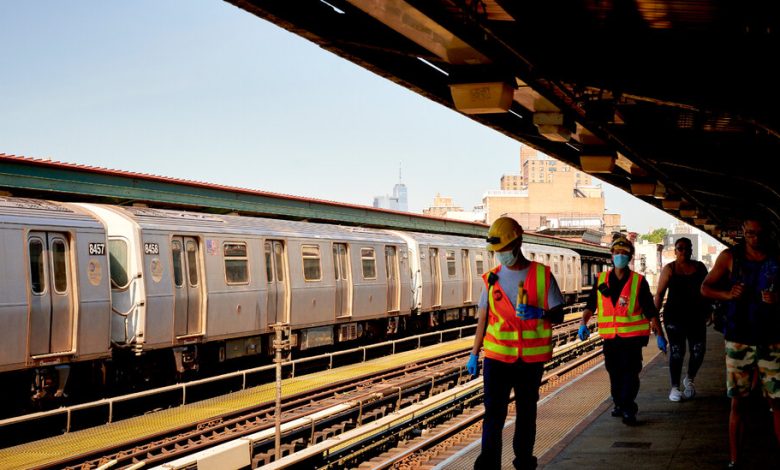Congestion Pricing Delays Threaten Subway Projects, M.T.A. Chair Says

The News
New Jersey’s attempt to block new tolls to enter Manhattan risks the funding to improve the subway and bus network, New York transit officials said on Wednesday.

New York transit officials warn that any delays to the congestion pricing program would also delay vital improvements to the city’s subway and bus network. Credit…Gabby Jones for The New York Times
Why It Matters: The M.T.A. relies on congestion pricing money.
The next capital budget cycle for the Metropolitan Transportation Authority, the state agency that runs the subway and buses, relies heavily on revenue generated by the congestion pricing program, which would toll drivers entering Manhattan below 60th Street.
Without that money, the authority says it can’t pay for crucial projects that could include making necessary updates to the subway’s aging signal system, which directs train traffic. The authority also has plans to build elevators and ramps to make the system accessible for people with ambulatory disabilities. And it has announced a pilot program to test platform barriers intended to keep transit riders from falling or being pushed onto tracks.
Background: New Jersey wants to stop the tolls.
In July, New Jersey sued the federal government to stop congestion pricing over concerns that it would place unfair financial and environmental burdens on the state’s residents. The litigation is the biggest threat to the tolling program, though New Jersey lawmakers have also drafted legislation to try to block its progress.
The authority had hoped to begin tolling drivers as soon as next spring, but the lawsuit has thrown that timeline into question.
During a news conference on Wednesday, Janno Lieber, the authority’s chairman and chief executive, said: “We could have consequences if there is a significant delay in congestion pricing.”
What the Critics Say: Suburbanites say the program creates more traffic and pollution.
The lawsuit argued that the Federal Highway Administration made a “decision to rubber-stamp” its approval of congestion pricing, which was the program’s final federal hurdle. It called on the M.T.A. to further research the environmental impact of congestion pricing and argued that the tolls would push more traffic and pollution into other boroughs and suburban communities.
Reacting to Mr. Lieber’s comments on Wednesday, Representative Josh Gottheimer, a Democrat from New Jersey and leading opponent of congestion pricing, accused the authority of taking money from his state’s residents for its own benefit.
“M.T.A. Chairman Lieber is admitting what we’ve been saying all along: New York’s congestion tax is nothing more than a giant cash grab to fund the mismanaged M.T.A.,” Mr. Gottheimer said in an email.
The Numbers: Congestion pricing tolls are a big part of the M.T.A. capital budget.
The transit system has a $51.5 billion capital budget which runs from 2020 through next year. Congestion pricing is expected to generate $1 billion annually that the M.T.A. plans to leverage to finance $15 billion in bonds, making up roughly 29 percent of the budget to build infrastructure improvements and purchase new equipment.
Without that money, the authority warns it must drastically scale back capital projects.
What’s Next: Tolls are still coming.
Despite Mr. Lieber’s concerns, experts said that, for now, nothing is legally stopping the authority from continuing to roll out the program.
But if New Jersey prevails in court, the M.T.A. could be subjected to a more exhaustive study that would delay the tolls by roughly a year.
Transportation officials had already commissioned a rigorous environmental assessment whose documents numbered tens of thousands of pages. The M.T.A. would have to do more work to fulfill the more expansive environmental impact study that New Jersey is calling for, said Michael Gerrard, a professor of environmental law at Columbia Law School.
“If the government puts its nose to the grindstone, it can do this in less than a year,” Mr. Gerrard said.
The M.T.A. has yet to decide on toll rates. In last year’s environmental assessment, the authority said it was reviewing proposals that included potential fees of up to $23 for a rush-hour trip and $17 during off-peak hours.
